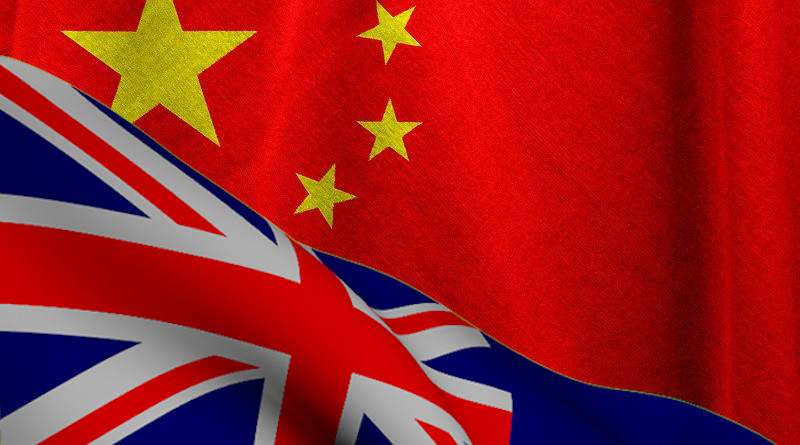Australia-China Relations: Down Under Squabbling – OpEd
These are proving testy times for Australian-Chinese relations. Last week, Chinese authorities announced that an investigation would be conducted into claims that Australia has been using unfair dumping practices for its wine on the Chinese market. This was not what Australian wine makers wanted to hear, given that exports of Australian wine to China grew from AU$268 million in 2015/16 to AU$1.75 billion in 2018/19. While the investigation will take eighteen months, it risks going the way of a similar anti-dumping inquiry into Australian barley that was concluded in May.
On Wednesday, Wang Xining, the deputy head of mission of China’s embassy to Australia, spoke about various creases that had arisen in the relationship. Before the National Press Club in Canberra, he wished to “remove the shadows” that had been cast. “We are not trying to turn Australia into the People’s Republic of China … we’re not asking Hungry Jack’s to sell Chinese dumplings.” He suggested there was a confusion between foreign interference and foreign influence. Australia could hardly enjoy wealth, cultural diversity and intellectual richness “without accepting some foreign influence.”
Australia had also done its bit to hurt “the feelings of the Chinese people” by promoting an international investigation into the origins of the coronavirus. “All of a sudden, they heard this shocking news of a proposal coming from Australia, which is supposed to be a good friend of China.”
Response to his speech was miffed. Liberal MP Dave Sharma struggled to identify the “authenticity” of the message. He questioned Chinese willingness to “having open channels of dialogue”, given Beijing’s insistence on limiting contact with counterparts in Canberra.
Then came the freely expressed opinions of former Australian Defence Minister Kevin Andrews, whose private Zoom call with party members spoke of his “problems … with the most complete totalitarian regime that we’ve seen probably on the face of the earth from the regime of Xi Jinping.” Previous totalitarian regimes might have taken issue with that characterisation, not least of all because they would have deserved top billing for that honour.
But Andrews, along with a good number of Australian politicians, is rattled by the Oriental Menace. His grievances span “aggression in the South China Sea”, repression and incarceration of the Uighurs in “re-education camps”, and “a complete trampling of the agreement with China and the UK (to allow greater freedom).”
When such criticisms make their way to stage and podium, the crude, and not altogether invalid criticism from Deng Xiaoping comes to mind. National sovereignty, he insisted, came first but “talk about human rights, freedom and democracy is designed … to safeguard the interests of … strong and rich countries.” Countries keen to huff about human rights violations were often the very same ones infringing “upon the sovereignty of poor, weak countries of the Third World.”
Within Australia itself, lashes of concern are being directed at Victoria’s Belt and Road agreement with Beijing. The Morrison government has promised to introduce legislation that will grant the foreign affairs minister powers to review and cancel such initiatives. Foreign minister Marise Payne noted the current absence of legislation compelling states and territories to consult the Commonwealth “on arrangements with foreign governments”.
Keen watchers of this episode will note the stark inconsistency of positions taken by the Morrison government and his predecessors on such Beijing-related matters. On the one hand, the BRI nestling in an Australian state constitutes a threat, a tingling sensation of discomfort that has ministers and backbenchers up in arms. On the other, Australia has expressed approval in forming a partnership with China on that very same initiative, covering infrastructure projects in other countries. When the decision was made by the Northern Territory government to grant a 99-year lease of the Port of Darwin to China’s Landbridge Group, the Commonwealth kept its distance.
A club of anti-China enthusiasts is attempting to reverse, or annul, such agreements. Liberal Senator Concetta Fierravanti-Wells spoke in May of possibilities that evoking a national security emergency might give. Australia had to reverse its attitude to Beijing, which had “erred on the side of appeasement instead of standing up to often bellicose and illegal actions”.
On August 26, China put more runs on the board of grievance with its customs department suspending beef exports from John Dee claiming it had found traces of the banned veterinary chemical chloramphenicol in sirloin pieces. According to a statement from China Customs, “In order to safeguard the food security of imported meat, China has informed the Australia side to conduct a comprehensive investigation on the company and repot the result to China side.” This added to the suspension of four Australian abattoirs in May over those ever regularly cited reasons: non-compliance with health and labelling requirements.
Not to be outdone, the Australian government blocked the sale of Australia’s oldest family-owned meat processor and Japanese-owned Lion Diary and Drinks, to China Mengniu Dairy Company. Both parties had already sensed that the Foreign Investment Review Board might be reluctant to grant final approval, and agreed to cease the process. It was certainly a departure from the initial confidence felt in February, when the Australian Consumer and Competition Commission gave its blessing, claiming the sale would not undermine local milk supplies.
But the times are awash with squabble and suspicion. Half-baked reasons are circulating about the next trade snipe, the next meddle and investigation. The Australian treasurer, Josh Frydenberg, had told Mengniu Dairy that “the proposed acquisition would be contrary to the national interest,” a view he claimed was “preliminary”. Nothing of detail was provided and certainly seemed at odds with the Morrison government’s approval of the AU$1.5 billion sale to Mengniu of the baby formula business Bellamy’s last year. National interest can be such a slippery concept.

